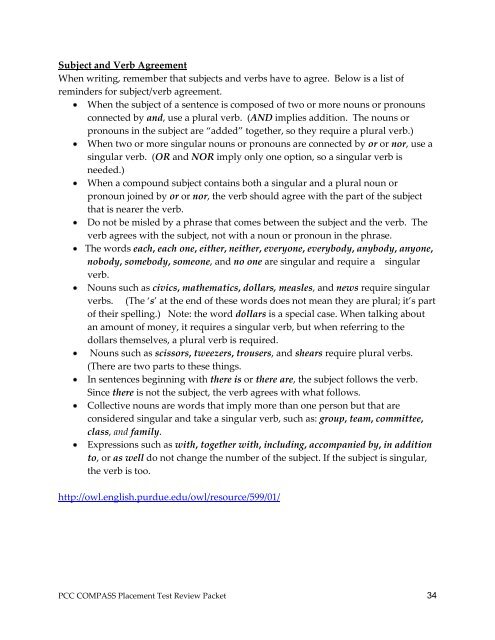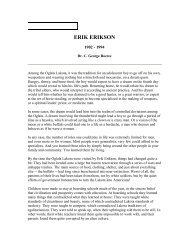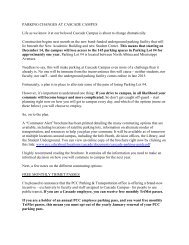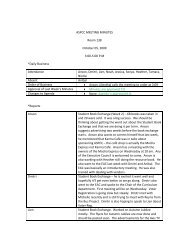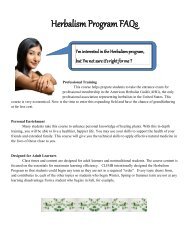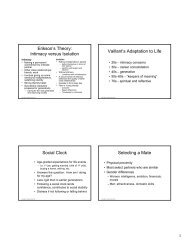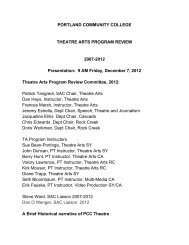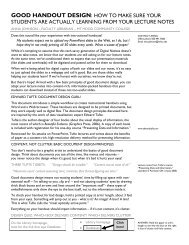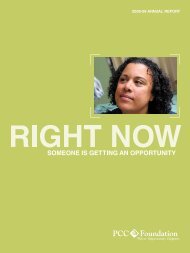COMPASS Placement Test Review Packet - Portland Community ...
COMPASS Placement Test Review Packet - Portland Community ...
COMPASS Placement Test Review Packet - Portland Community ...
Create successful ePaper yourself
Turn your PDF publications into a flip-book with our unique Google optimized e-Paper software.
Subject and Verb Agreement<br />
When writing, remember that subjects and verbs have to agree. Below is a list of<br />
reminders for subject/verb agreement.<br />
When the subject of a sentence is composed of two or more nouns or pronouns<br />
connected by and, use a plural verb. (AND implies addition. The nouns or<br />
pronouns in the subject are ‚added‛ together, so they require a plural verb.)<br />
When two or more singular nouns or pronouns are connected by or or nor, use a<br />
singular verb. (OR and NOR imply only one option, so a singular verb is<br />
needed.)<br />
When a compound subject contains both a singular and a plural noun or<br />
pronoun joined by or or nor, the verb should agree with the part of the subject<br />
that is nearer the verb.<br />
Do not be misled by a phrase that comes between the subject and the verb. The<br />
verb agrees with the subject, not with a noun or pronoun in the phrase.<br />
The words each, each one, either, neither, everyone, everybody, anybody, anyone,<br />
nobody, somebody, someone, and no one are singular and require a singular<br />
verb.<br />
Nouns such as civics, mathematics, dollars, measles, and news require singular<br />
verbs. (The ‘s’ at the end of these words does not mean they are plural; it’s part<br />
of their spelling.) Note: the word dollars is a special case. When talking about<br />
an amount of money, it requires a singular verb, but when referring to the<br />
dollars themselves, a plural verb is required.<br />
Nouns such as scissors, tweezers, trousers, and shears require plural verbs.<br />
(There are two parts to these things.<br />
In sentences beginning with there is or there are, the subject follows the verb.<br />
Since there is not the subject, the verb agrees with what follows.<br />
Collective nouns are words that imply more than one person but that are<br />
considered singular and take a singular verb, such as: group, team, committee,<br />
class, and family.<br />
Expressions such as with, together with, including, accompanied by, in addition<br />
to, or as well do not change the number of the subject. If the subject is singular,<br />
the verb is too.<br />
http://owl.english.purdue.edu/owl/resource/599/01/<br />
PCC <strong>COMPASS</strong> <strong>Placement</strong> <strong>Test</strong> <strong>Review</strong> <strong>Packet</strong> 34


